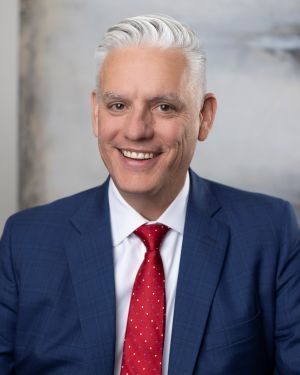 Motorcycle accidents can have catastrophic physical, emotional, and financial consequences. Though victims often hope to return to work after their injuries heal, many come to the devastating realization that their accident-related impairments won't allow them to go back to their old job or will prevent all gainful employment.
Motorcycle accidents can have catastrophic physical, emotional, and financial consequences. Though victims often hope to return to work after their injuries heal, many come to the devastating realization that their accident-related impairments won't allow them to go back to their old job or will prevent all gainful employment.
Were you hurt in an Iowa motorcycle crash caused by another person or company's negligence? You may be entitled to damages for your injuries and losses. If you returned to work but face modified duty or limited hours—or are unable to work—your recovery may include compensation that addresses how lasting impairments from the accident impact your ability to earn a living. Here's what you need to know about loss of future earning capacity damages and how the skilled Iowa motorcycle accident lawyers with the Law Office of Matthew A. Lathrop can help you fight for a full and fair recovery.
Understanding Loss of Future Earning Capacity
Iowa allows motorcycle crash victims to seek compensation for the income they will lose as a result of long-term or permanent impairment. Known as loss of future earning capacity, this category of damages essentially compensates victims for the loss of the potential to earn income. This differs from the loss of future earnings, a measure of actual earnings the victim will lose, which can be much more difficult to prove.
Assessing Your Loss of Future Earning Potential
The value of loss of future earning potential damages is determined by the difference in your earning capacity before and after the accident. There's a lot that goes into arriving at a fair monetary figure. Factors that can affect what you can recover include your workplace experience, skills, and past earnings; whether you're able to train for new jobs or careers; the severity of your injuries; and statistical data on how long you'll live. Expert opinions are crucial in Iowa motorcycle crash personal injury cases. Here are examples of experts commonly used in motorcycle accident litigation and how they might help your claim.
Medical Specialists
Medical evidence and testimony is vital in determining the value of your loss of future earning capacity. Your doctors will evaluate your injuries, assess your prognosis, and assign an impairment rating. This rating describes the degree of your physical impairment in relation to normal bodily functionality and can be used to determine the physical consequences of your impairment or disability.
Vocational Experts
Vocational specialists are key to recovering fair damages for the loss of future earning capacity. These experts can help convey how your impairments will impact you in a workplace setting. They can also offer testimony on work that you can or cannot perform in light of your permanent injuries. This can provide valuable guidance for juries awarding damages.
Economists
In some cases, the testimony of a vocational expert may provide sufficient proof of loss of future earning capacity. However, in other cases, an economist can be brought in to help quantify lost potential future earnings for a judge or jury.
What Else You Might Recover
Loss of future earning capacity is far from the only thing you can recover in an Iowa motorcycle accident lawsuit. Other damages may include compensation for:
- All crash-related medical expenses, including the cost of future care
- Lost wages and benefits
- Out-of-pocket expenses
- Physical pain and suffering
- Mental and emotional distress
- Scarring or disfigurement
- Disability
- Reduced quality of life
- Loss of enjoyment of life
- Other losses
What you can recover in motorcycle accident litigation depends largely on the facts and evidence in your case—including expert testimony—and the skill of your attorneys. There's far too much at stake to go it alone. Fortunately, you don't have to. Let the accomplished Iowa motorcycle crash attorneys at the Law Office of Matthew A. Lathrop handle the legal heavy lifting so that you can focus on feeling better.
Talk to Us About Your Iowa Motorcycle Crash Case
Ready to find out what we can do for you and your case? Complete the contact form or call 402-281-9668 for a free initial consultation.
|
Related Links: |

